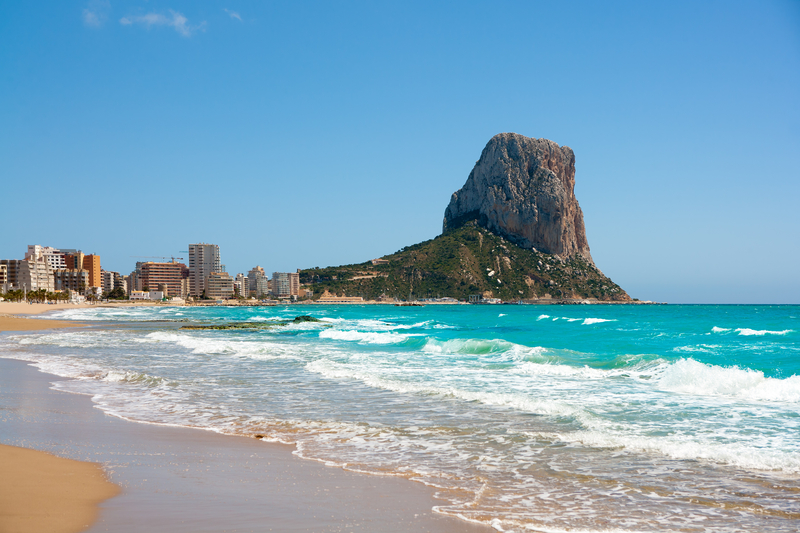
Calpe, Spain – The popular Arenal-Bol beach in Calpe has fully reopened to swimmers just in time for peak season. On Friday, July 4, after the latest water tests conducted by the General Directorate of Water confirmed excellent quality, the temporary swimming ban was lifted. This brings a sigh of relief to locals and tourists alike, who can now once again enjoy the Mediterranean sun and clear waters without concern.
Background to the Closure: Swift Reaction to Discoloration
The temporary closure of a section of the beach was initiated due to observations of discolored water flowing into the sea from the mouth of the Quisi gorge. This immediately raised suspicions of potential sewage pollution with both the municipal council and the regional environmental agency (Conselleria de Medio Ambiente). As a precautionary measure, the affected area was promptly cordoned off, a red flag was raised, and the blue flag – an important environmental quality seal – was removed. Additionally, a temporary sand barrier was erected to prevent further discharges. This swift and decisive response by the authorities demonstrates their commitment to protecting public health and the environment.
Thorough Analyses Ensure Safe Swimming
During the closure, new water samples were continuously collected and intensively analyzed. The results now available confirm that the water quality meets the highest safety standards for bathing. “The results of the water analyses of Arenal-Bol beach show that it is in an excellent state, which is why the City Council has reopened the beach section at the mouth of the Quisi gorge for bathing,” stated the official announcement from the Calpe City Council. This positive news allows for the full resumption of swimming activities and secures the tourism business in the region.
Parallels and Prevention: Lessons Learned Along the Coast
This incident in Calpe is reminiscent of a similar case earlier this year in the La Safor region. There, beaches in Xeraco, Daimús, and Tavernes de la Valldigna had to be closed in February due to bacterial contamination. Tests revealed elevated concentrations of intestinal enterococci, indicating fecal contamination. Environmental authorities suspect sewage leaks there and have launched comprehensive investigations to determine the causes and prevent future contamination.
Both cases underscore the growing importance of water quality along the Valencian coast. Regional and local authorities are aware of this challenge and are committed to intensifying monitoring efforts and investing in modern early warning systems. The goal is to optimally protect public health and the sensitive coastal ecosystem, especially during the busy summer months.



